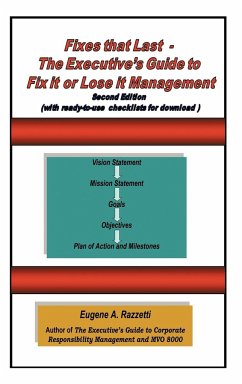We live in an increasingly global economy in which the effects of shrunken economies, broadened communication, and widespread meteorological incidents associated with climate change are leaving virtually no one untouched. As a result, a working knowledge of concepts such as the triple bottom line and sustainability, have become mandatory. Systems-thinking is foundational for grasping these concepts and is based on trans-disciplinary theories deriving in part from biology, physics, economics, philosophy, computer science, engineering, geography, and other sciences.
Specifically it is the study of systems, including all life forms, climate phenomena, and even in human learning and organizational processes, that regulate themselves through feedback. The media and the public have become savvy to corporate green-washing, and government regulation, already pervasive in Europe, is imminent in the United States. Business practices are a subsystem of human activity, which is itself a subsystem of the biosphere we all depend upon for services, such as clean air and water, sufficient soils to produce food, and moderate weather. Corporate sustainability practices are in the midst of becoming a required aspect of the social license to conduct business, and the use of a systems framework provides a coherent and eminently sensible way to comprehend the structure and logic that underlies this transition.
Green business efforts and stakeholder initiatives undertaken by those without the requisite understanding of sustainability and the trends related to it in the world of commerce risk adverse press, activist pressure, regulatory constraint, added expense, reduced revenue, and lowered valuation. This book offers a practical, relevant, and easily grasped overview of sustainability issues and the systems logic that informs them, supported by empirical research and applied to corporate rationales, decision-making, and business processes.
Intended for business professionals seeking concise, reliable, and current knowledge and trends, it will support them in leading their organizations' corporate sustainability, social responsibility, and citizenship efforts so they can remain competitive and successful.
Specifically it is the study of systems, including all life forms, climate phenomena, and even in human learning and organizational processes, that regulate themselves through feedback. The media and the public have become savvy to corporate green-washing, and government regulation, already pervasive in Europe, is imminent in the United States. Business practices are a subsystem of human activity, which is itself a subsystem of the biosphere we all depend upon for services, such as clean air and water, sufficient soils to produce food, and moderate weather. Corporate sustainability practices are in the midst of becoming a required aspect of the social license to conduct business, and the use of a systems framework provides a coherent and eminently sensible way to comprehend the structure and logic that underlies this transition.
Green business efforts and stakeholder initiatives undertaken by those without the requisite understanding of sustainability and the trends related to it in the world of commerce risk adverse press, activist pressure, regulatory constraint, added expense, reduced revenue, and lowered valuation. This book offers a practical, relevant, and easily grasped overview of sustainability issues and the systems logic that informs them, supported by empirical research and applied to corporate rationales, decision-making, and business processes.
Intended for business professionals seeking concise, reliable, and current knowledge and trends, it will support them in leading their organizations' corporate sustainability, social responsibility, and citizenship efforts so they can remain competitive and successful.








